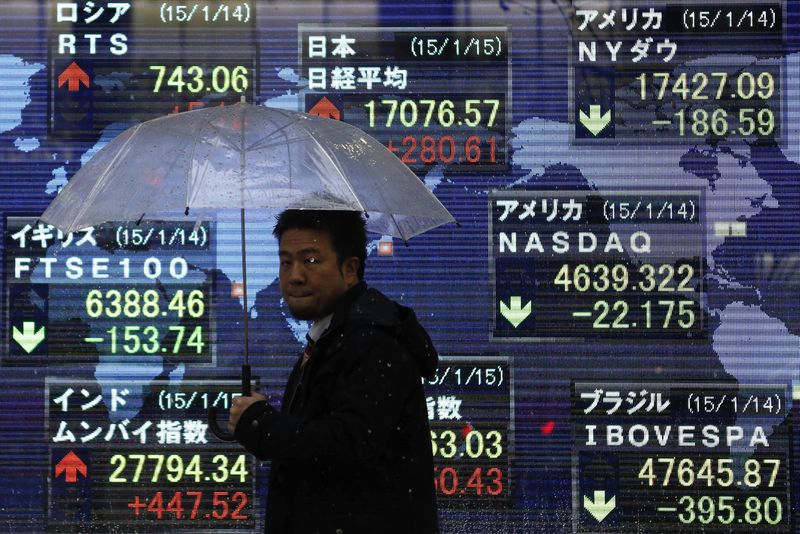This post was originally published on this site
https://i-invdn-com.investing.com/news/LYNXMPEB0I07L_M.jpg
Investing.com – Asia Pacific stocks were mostly down on Wednesday morning, even as U.S. data boosted Wall Street shares. Calls for the U.S. Federal Reserve to adopt a more hawkish monetary policy to curb rising inflation also dented investor sentiment.
Japan’s Nikkei 225 was down 0.43% by 9:26 PM ET (2:26 AM GMT) and South Korea’s KOSPI fell 0.78%.
In Australia, the ASX 200 fell 0.73%.
Hong Kong’s Hang Seng Index was down 0.48%.
China’s Shanghai Composite edged up 0.18% and the Shenzhen Component edged up 0.13%. Hopes of improved U.S.-China relations after Chinese President Xi Jinping and his U.S. counterpart Joe Biden took part in a virtual summit on Monday boosted Chinese stocks listed in the U.S.
Data released on Tuesday showed that U.S. core retail sales grew by a better-than-expected 1.7% month-on-month in October, while retail sales also grew a better-than-expected 1.7%.
However, Fed Bank of St. Louis President James Bullard’s call for a more hawkish monetary policy highlighted worries about how high inflation could impact central banks’ monetary policies.
Investors now await comments from Fed Vice Chairman Richard Clarida and Fed Bank of San Francisco President Mary Daly at Friday’s Asia Economic Policy Conference.
Biden is also due to select the nominee for the Fed Chairman position, as incumbent Chairman Jerome Powell’s term expires in February 2022. The decision is reportedly due in around four days, with Fed Governor Lael Brainard and Powell in the running.
U.S. Treasuries continued their downward trend, but the benchmark 10-year yield held above 1.6% and an auction of 20-year notes will take place later in the day.
Meanwhile, U.S. Treasury Secretary Janet Yellen warned that the government is at risk of default unless lawmakers lift the legal debt ceiling by Dec. 15, and yields on Treasury bills maturing at the end of 2021 rose.
Although corporate profits have seemingly been minimally impacted by rising inflation, the question remains on whether this rise will be temporary or a more long-lasting phenomenon requiring central banks to respond with sharper monetary policies.
“Going into the end of 2021, we feel like the equity markets should remain strong,” UBS Global Wealth Management managing director Xi Qiao told Bloomberg. However, “we expect more volatility ahead with rising rates” and that inflation and COVID-19 concerns continue to stir anxiety, she added.

